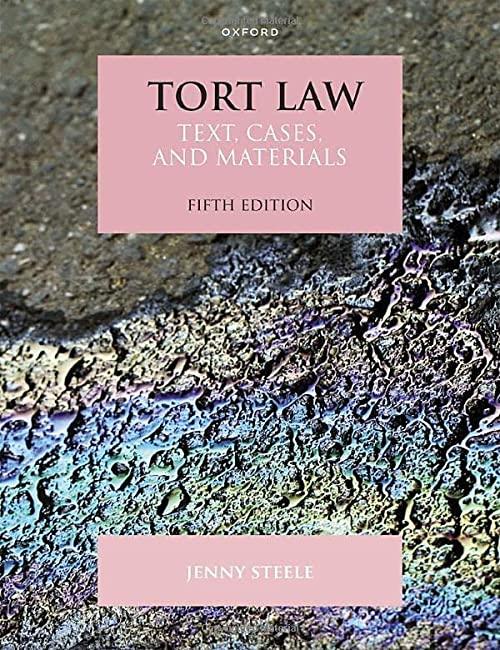Question
1) In an effort to improve its public image, Nevada's State Supreme Court made public the following types of proceedings, EXCEPT when the Court goes
1) In an effort to improve its public image, Nevada's State Supreme Court made public the following types of proceedings, EXCEPT
- when the Court goes into private conference to decide upon a case
- to make public the applications of those seeking appointment to the bench
- disciplinary proceedings against attorneys by Nevada's bar association once probable cause is shown
- administrative rule changes that effect how the court operates
2) Since 1939, _____ percent justices serving on the State Supreme Court were initially appointed to fill a midterm vacancy; _____ percent of justices who ran for reelection won, and _____ percent of thosewho ran did not draw an opponent.
- 67%; 93%; and 71%, respectively
- 42%; 77%; and 31%, respectively
- 42%; 77%; and 31%, respectively
- 42%; 77%; and 31%, respectively
3) Nevada is composed of more than a hundred non-education special district governments that have the power to levy taxation for specific public purposes, an authority delegated by the state at its discretion. Which of the following is NOT an example of a special district as discussed by Bowers?
- water districts
- library districts
- water districts
- cemetery districts
4) Heads of county departments are elected officials who keep to themselves a degree of autonomy from county commissions. Their election and terms of office mean that county department heads, like thesheriff, district attorney, and the county assessor, hold as much accountability to the voters as officials elected to the county commissions.
- True
- False
5) The Tenth Amendment to the U.S. Constitution allows for "those powers not delegated to the United States by the Constitution, nor prohibited by it to the States, are reserved to the States respectively, or to the people." This article empowers local governments like counties and municipalities to determine their own statutory authorities, autonomous from the state.
- True
- False
6) The final stage of a case in Nevada occurs when it reaches the State Supreme Court, making it the state's only appeals court. The State District Courts are courts with general jurisdiction over matters of state law, with justice and municipal courts having limited jurisdiction. State Supreme Court decisions dealing with state (questions of law) are not appealable to any other court, except in those cases where a federal constitutional question is raised.
- True
- False
Step by Step Solution
There are 3 Steps involved in it
Step: 1

Get Instant Access to Expert-Tailored Solutions
See step-by-step solutions with expert insights and AI powered tools for academic success
Step: 2

Step: 3

Ace Your Homework with AI
Get the answers you need in no time with our AI-driven, step-by-step assistance
Get Started


